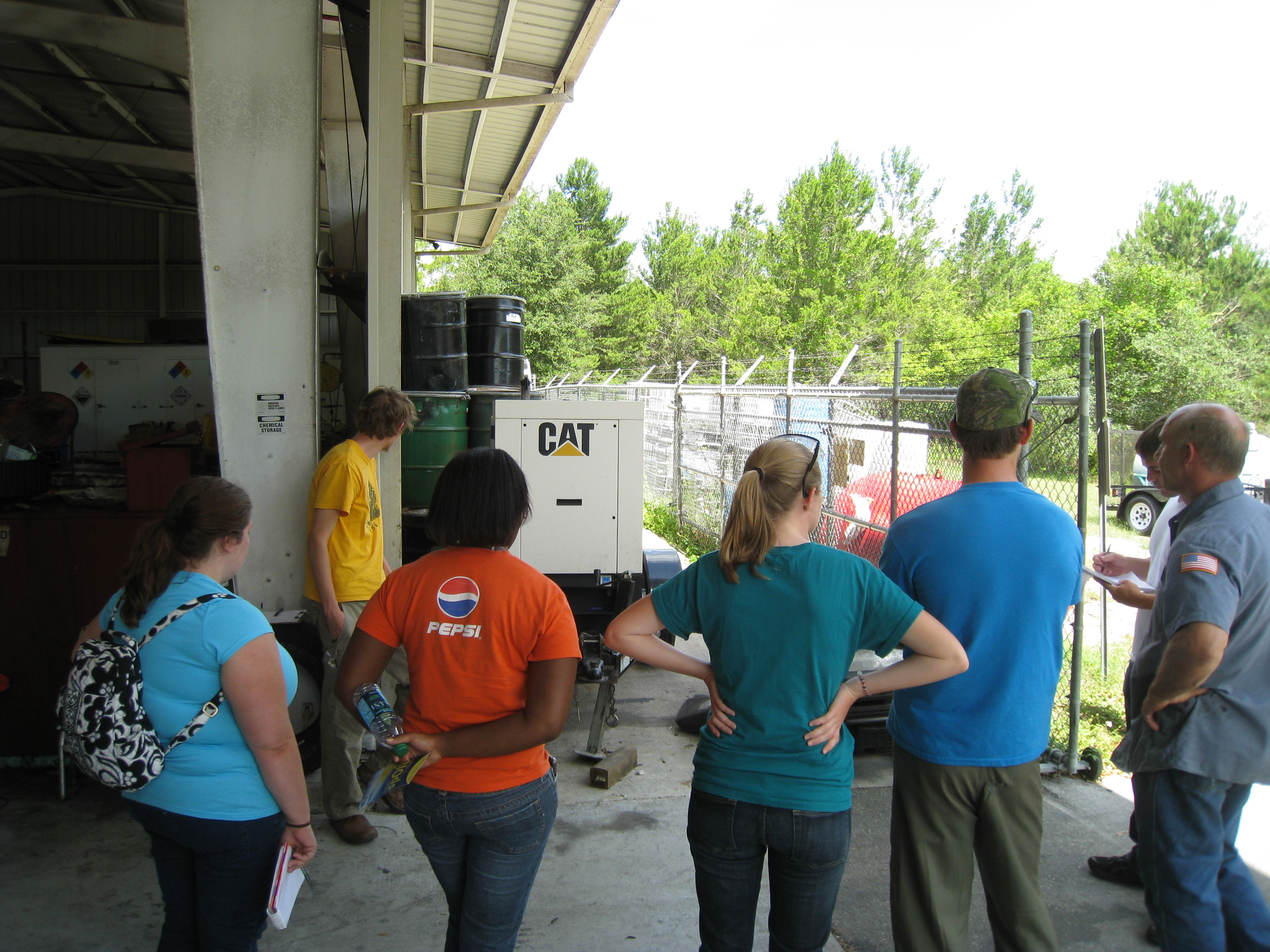Biodiesel Production at the Alachua County Hazardous Waste Collection Center

The Transfer Station of Alachua County has been operating since 1998 and deals with 500-600 tons of commercial and residential waste per day. Hazardous materials are separated from regular trash to ensure that they are handled and processed separately according to their potential danger. This facility promotes recycling as a means to combat environmental damages and minimize potential ecological threats.
The Transfer Station’s most recent push towards a greener future is through utilizing waste vegetable oil to be converted into biodiesel directly at the facility. The idea to do this was spurred by a local high school student who saw an opportunity to put the waste oil to use. This initiative towards smarter waste management has earned the Transfer Station a grant by the EPA to continue its biodiesel production as well as research into alternative uses of the waste oil. The Transfer Station is considered a “regulated facility” due to its production of methanol within the glycerin that is leftover after making the biodiesel.
Even the building itself is run on the biodiesel it produces by way of a CAT generator located just outside. Enough power is made with one gallon of 100% biodiesel to run the entire facility for an hour. The biodiesel produced at the facility was originally given to other parts of the waste management complex but is now sold at $1.80 per gallon. The Transfer Station has only just started to tap the potential of alternative fuels and looks to continue research of this kind in the future.